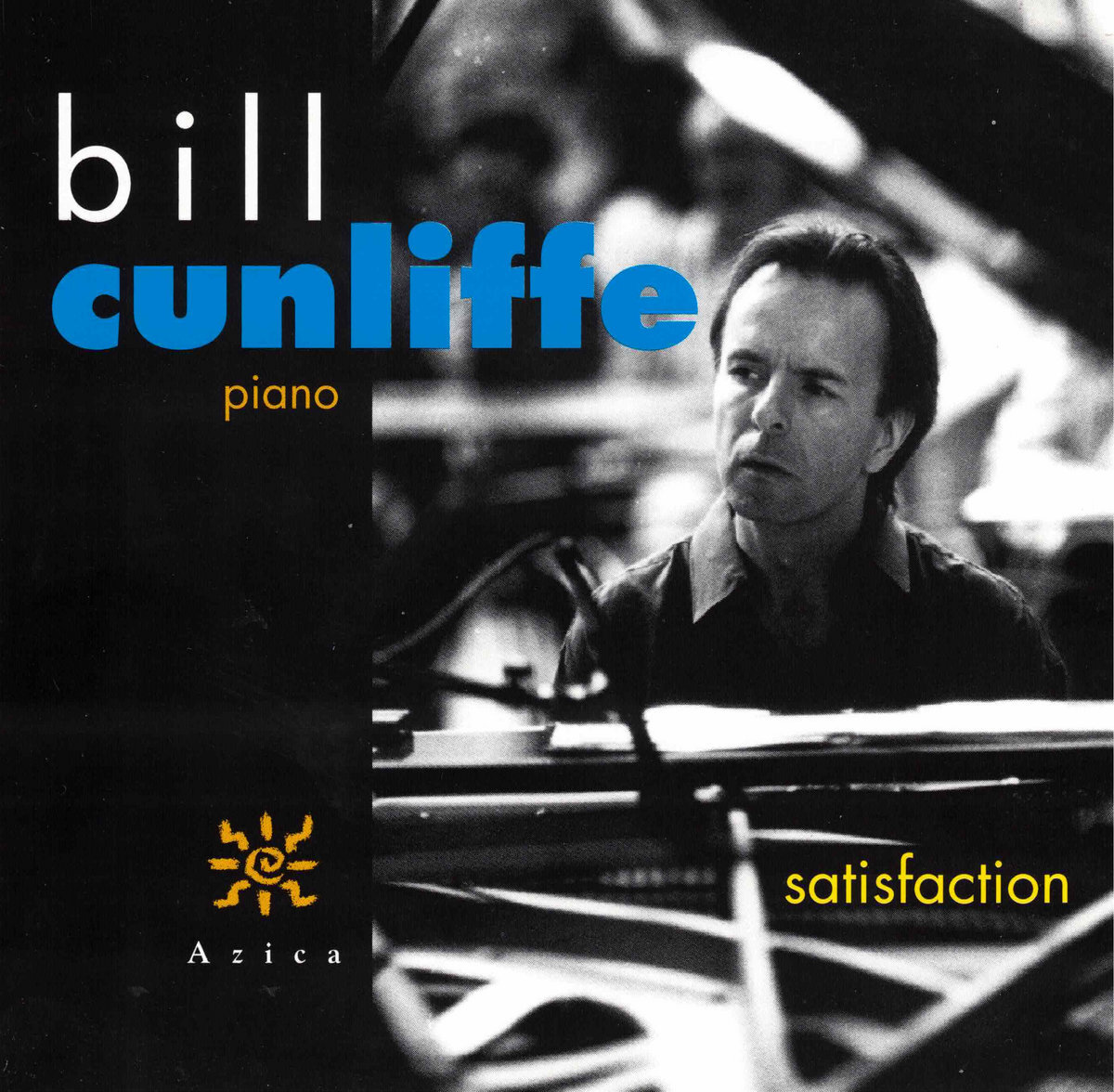1998
Satisfaction
1. My Heart Stood Still 4:21
2. Back at the Chicken Shack 4:19
3. Adagio from Symphony #2 5:03
4. Corcovado 5:04
5. But Beautiful 4:32
6. I Can't Get No Satisfaction 4:32
7. Polka Dots and Moonbeams 5:15
8. That Warm Feeling 5:36
9. Lost Weekend 5:37
10. To Ruth 3:53
11. I Want to Talk About You 5:27
12. You and the Night and the Music 3:29
13. I Have Dreamed 4:22
Bill Cunliffe - piano
Bill Cunliffe’s solo piano recording of thirteen classic songs includes “Corcovado,” “But Beautiful”, “Polka Dots and Moonbeams,” “My Heart Stood Still”, and Mick Jagger’s “Satisfaction”. Jimmy Smith’s “Back at the Chicken Shack”, with its constant rhythmic left-hand motion, folds the listener right up into the music. With the bass notes on the right channel and the upper melody on the left channel, it’s as if Cunliffe were sitting there facing you and sharing the expressions of the music firsthand. Sammy Nestico’s “That Warm Feeling” captures the soft, slow Count Basie Orchestra mood, punctuated by loud staccato blasts.
Here, the pianist’s right hand chords replace Basie’s brass section. Cunliffe’s own “Lost Weekend” and “To Ruth” express the core of his improvisational style: the left hand provides wide-ranging motion as a natural foundation while the right hand explores and creates lyric melodies. A gentle Sergei Rachmaninoff “Adagio” spins its familiar melody to the listener with lush arpeggiated harmonies.
The title track paints the lyrics “I Can’t Get no/Satisfaction” lightly and with a vocal inflection; the song’s expression comes through Cunliffe’s treatment of the whole. The pianist’s unique offering relies on a rock’n’roll left hand motion, subtle repetition, and Cunliffe’s own manner of phrasing. After studying with Mary Lou Williams at Duke University, Cunliffe moved to Rochester, New York, where he earned a master’s degree from the Eastman School of Music. Experience with the Buddy Rich Big Band, Woody Shaw, Art Blakey, James Moody, and many more broadened the pianist’s career and eventually brought him to Los Angeles.
-L.A. JAZZ SCENE, February 1999, Jim Santella
